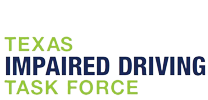News
Thinking Transportation Podcast – Episode 20. From BAC to THC: How the impaired driving danger is evolving
The latest statistics tell us that while driving drunk has become a bit less common, driving high is more prevalent than ever. As Senior Research Scientist Troy Walden explains, what exactly constitutes driving under the influence is not as simple as it once was, especially given the constantly changing landscape of state laws.
Texas continues to make significant efforts to reduce impaired driving fatalities, injuries and crashes. The percentage of motor vehicle fatalities that result from impaired driving have been steadily declining over the past decade. However, fatal crashes and deaths increased in 2021, but there is evidence that suggests that this trend may not continue in 2022. According to the Texas Crash Records Information System, in 2021 there were 1,136 alcohol-impaired driving fatalities in Texas which is a 15% increase from the 992 killed in 2020. These alcohol-impaired driving fatalities account for 25% of overall fatalities in the state. To adapt and address the rise in fatal crashes and deaths, Texas must continue to seek and apply innovative and evidence-based solutions.
The Center for Alcohol and Drug Education Studies (CADES) focuses on solving problems caused by the irresponsible use of alcohol and other drugs. CADES provides education, outreach and research related to alcohol and other drugs specifically as they relate to traffic safety. CADES coordinates its efforts with a wide variety of state agencies and stakeholders to provide a comprehensive and uniform approach to alcohol and drug education, outreach, and research.
“Impaired driving is a huge problem in Texas, and there are numerous reasons for that,” says Research Scientist Troy Walden, director of CADES at the Texas A&M Transportation Institute. “One of the biggest hurdles we face is the cultural acceptance of drinking and driving.” Walden and his team of CADES researchers are dedicated to solving problems — through various education, outreach and research projects — caused by the irresponsible use of alcohol and other drugs.





